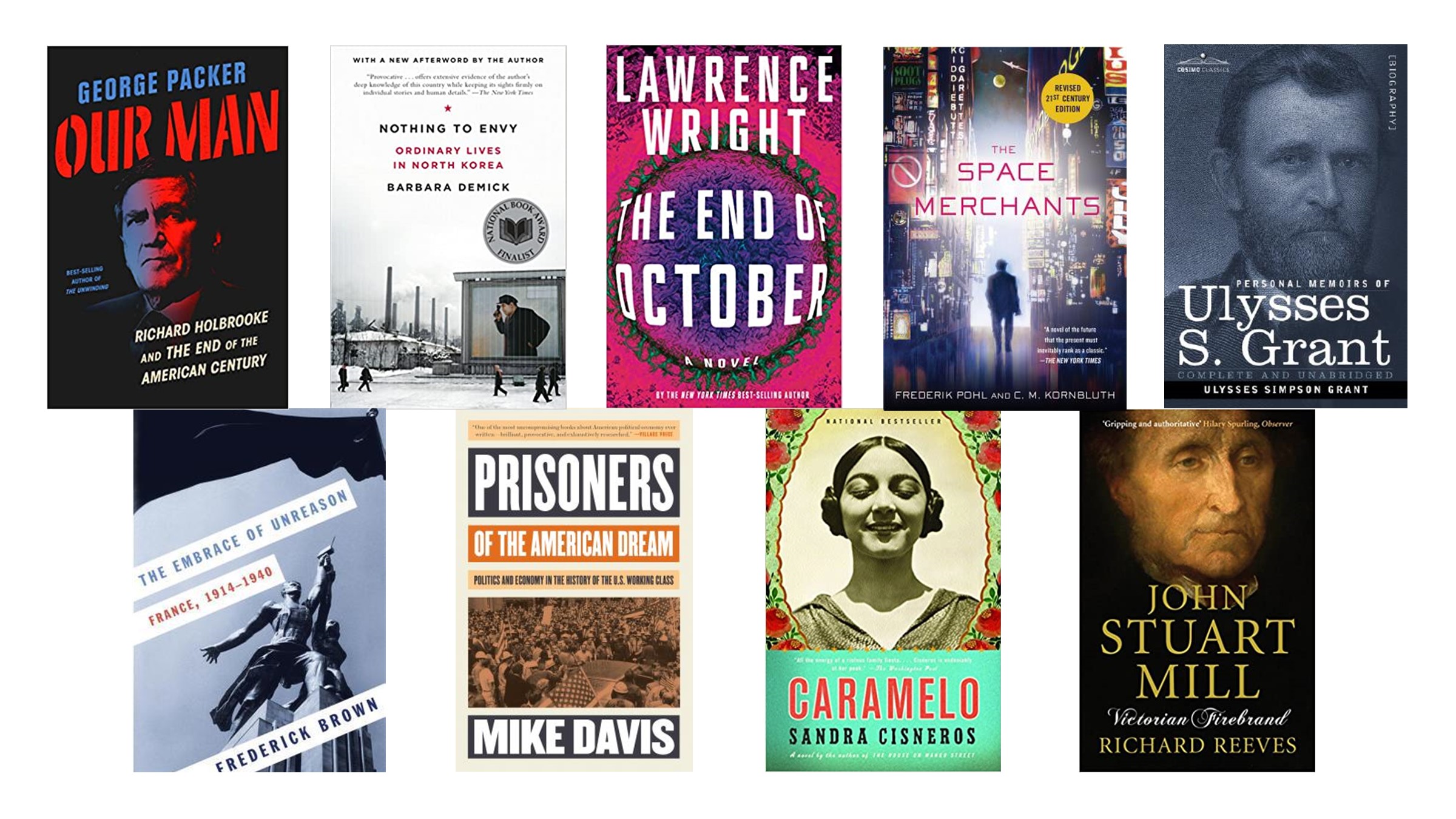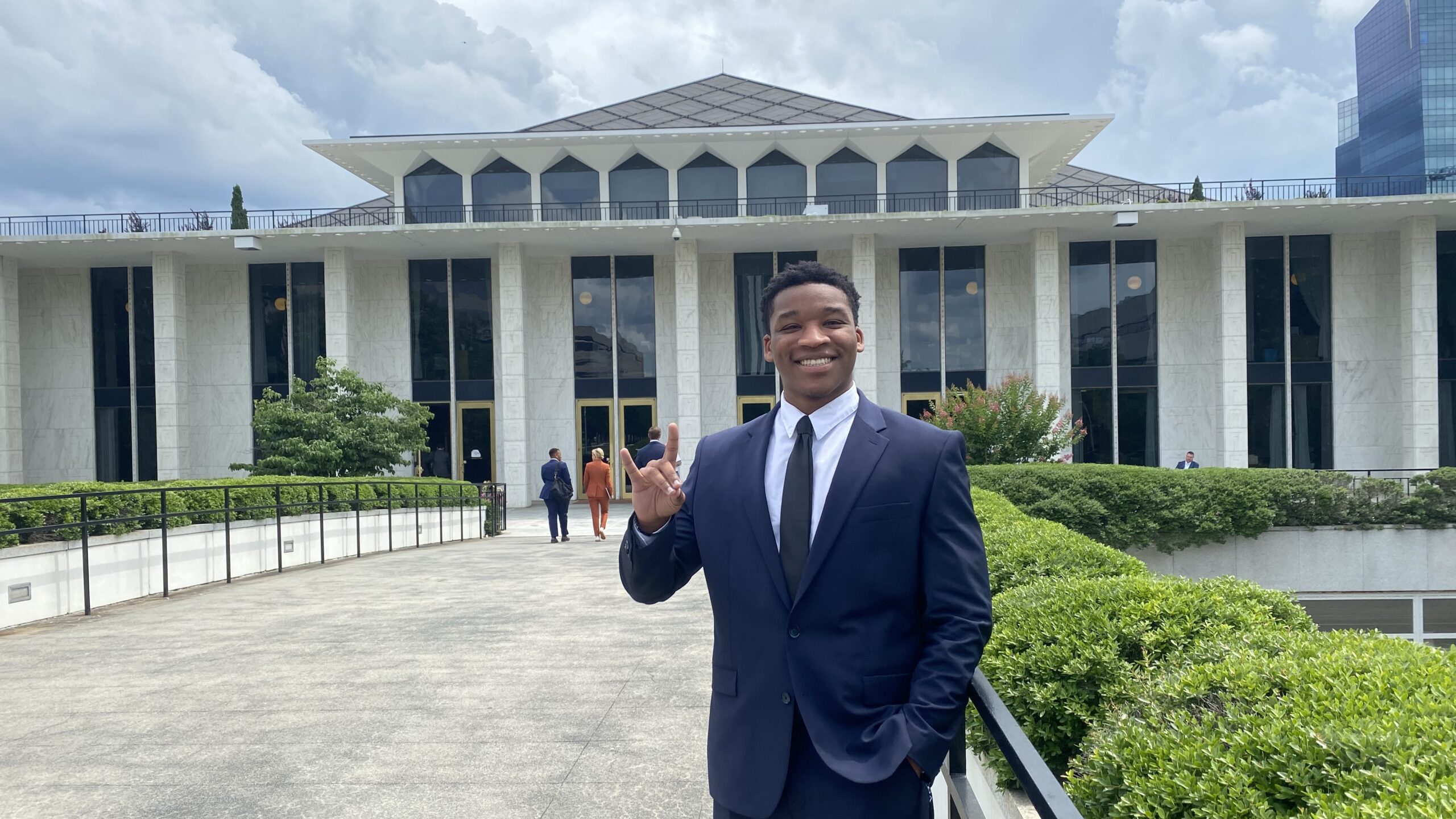Seven Faculty Share What They Are Reading This Fall

In an academic year like no other, with people spending more time at home, we asked our faculty in the School of Public and International Affairs what they are reading. We hope this list inspires you.
William A. Boettcher, Associate Professor of Political Science
I am reading George Packer’s book, Our Man: Richard Holbrooke and the End of the American Century, at the recommendation of Dr. Mahoney. Holbrooke was a key figure in American foreign policy, serving a number of presidents from Kennedy to Obama. He started in Vietnam, served as U.S. Ambassador to Germany, negotiated the Dayton Peace Accords, and served as U.S. Ambassador to the United Nations. His almost 50-year career in diplomacy encapsulates the American internationalist experience during this period. An essential, clear-eyed read for anyone interested in the history of U.S. foreign policy.
Jason Coupet, Associate Professor of Public Administration
I am reading Mike Davis’ Prisoners of the American Dream: Politics and Economy in the History of the US Working Class. The book is about why the history of the US progressive movement, and why a movement in support of the poor and working classes in the U.S. has lagged behind other nations. The book is excellent, and provides a fascinating history of the U.S. political economy that helps explain why many of the policies and institutions that we know support the working class are not implemented; so many use study policies that we think will help, but sometimes American values get in the way of implementation. I absolutely recommend it.
Steven Greene, Professor of Political Science
I recently finished reading The End of October by Lawrence Wright. It is a fictional account of a global pandemic. Wright presciently wrote the book last year. Having turned myself into an armchair epidemiologist during this pandemic, it was great fun reading a fictional account and seeing what Wright got very right about our response and what he got wrong. There was a lot of “oh, now we know it wouldn’t happen that way” reactions on my part, but even more, “oh, yeah, this sure sounds familiar.” In addition to being a novelist, Wright is a great journalist (his book on the rise of Al Qaeda and 9/11, The Looming Tower, won the Pulitzer), so he brings those great investigative skills to bear on explaining the nature of pandemics while keeping the plot moving at a healthy clip. You may not want to read a book about a pandemic right now, but if you, this is highly recommended.
Mark Nance, Associate Professor of Political Science
Caramelo by Sandra Cisneros. Caramelo centers around the familial and cross-cultural experiences of Lala Reyes. She and her family are Mexican, but live in Chicago. Much of the book takes place in her “mean grandmother’s” house in Mexico City. I lived in Mexico City for a summer in 2009 and loved it. The book is filled with amazing descriptions that really convey how different life is in the U.S. versus Mexico. At the same time, it also points out that a lot of the human experience—family, tragedy, love, loathing—is common across cultures. To me the book helps us celebrate differences, while embracing our commonalities. We need more of that these days.
Amanda Stewart, Associate Professor of Public Administration
I recently read Nothing to Envy: Ordinary Lives in North Korea by Barbara Demick. I found this book provided interesting insights into North Korea from people who have lived there—and it provided me a brief history of the Korean peninsula and an awareness for the suffering of this country and its people. I am glad to have this backstory to understand North Korea and its relations with the United States.
Andrew Taylor, Professor of Political Science
The other day I completed Richard Reeves’s John Stuart Mill: Victorian Firebrand. Mill is a kind of hero of mine, and Reeves gives him fair treatment. The subject is presented as the intellectual giant of liberal thought and British politics in the nineteenth century, but Reeves also shows his complexities. Mill’s personal relationships were always interesting and he married a friend’s wife almost immediately upon the man’s death. Reeves also demonstrates Mill’s move to the left on economic issues later in life and spends a great deal of time on the philosopher’s support for women’s rights.
I always like to have a book on Europe and I am currently reading Frederick Brown’s The Embrace of Unreason, which is a story of France between the two world wars. It intertwines discussions of artists, public intellectuals, and politics in a story demonstrating how forces from the far right and far left squeezed French liberalism. The costly victory in World War I laid the foundation for France’s capitulation to the Nazis and the ascent of the Vichy regime.
Jim Zink, Associate Professor of Political Science
The Space Merchants, by Frederik Pohl and C. M. Kornbluth (published in 1953), is a satire that tells the story of a near-future world where states operate in service of large corporations, political boundaries are no longer geographical but commercial, and advertising executives in particular possess unchecked power. I am reading it in part for my seminar (Politics and Science Fiction), but also, because it is fairly easy bedtime reading that is nonetheless packed full of themes that are particularly salient these days: consumerism run amok and the loss of autonomy, environmental degradation, and the like.
I’ve also been working my way through The Personal Memoirs of Ulysses S. Grant, by U.S. Grant. Written in simple language that exemplifies Grant’s plainspoken and unassuming manner, the memoirs nonetheless offer a penetrating look into a deeply flawed, corrupt United States as it barreled along toward civil war.
- Categories:


